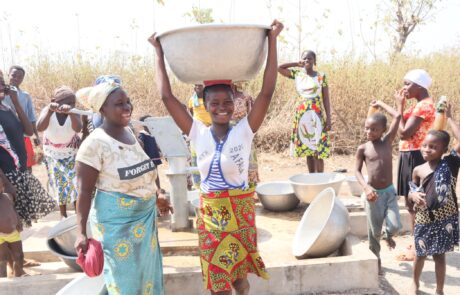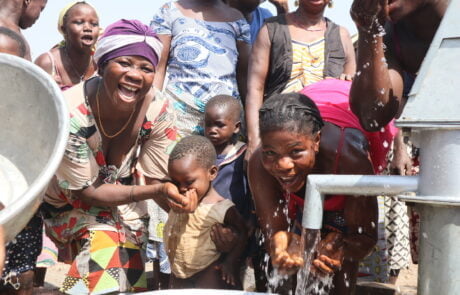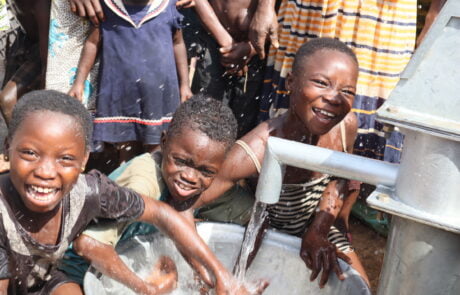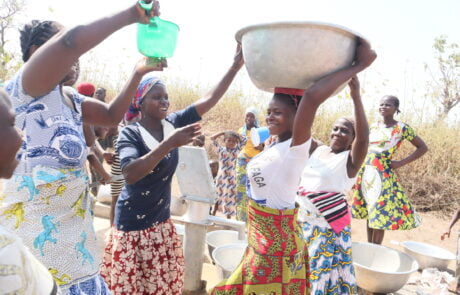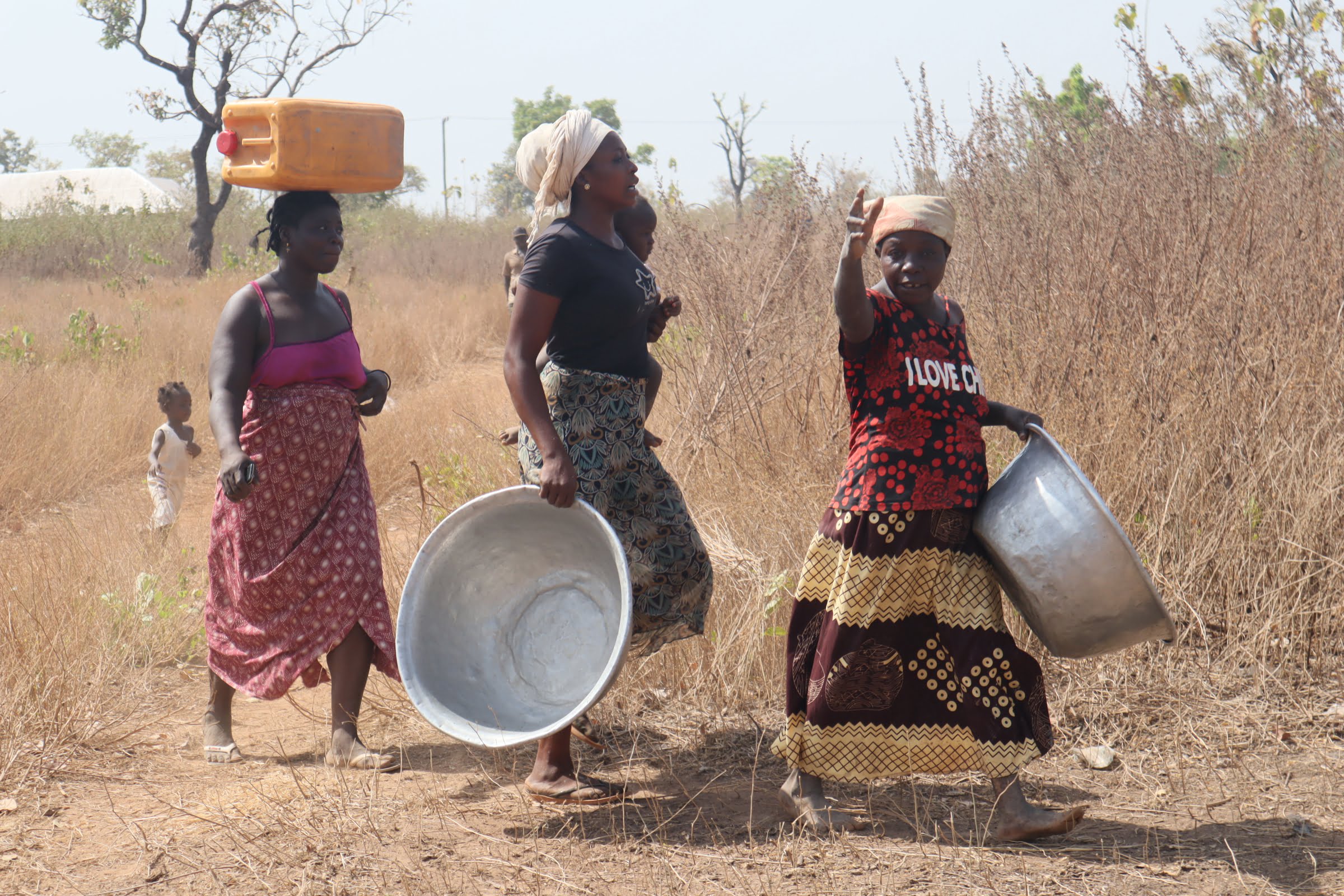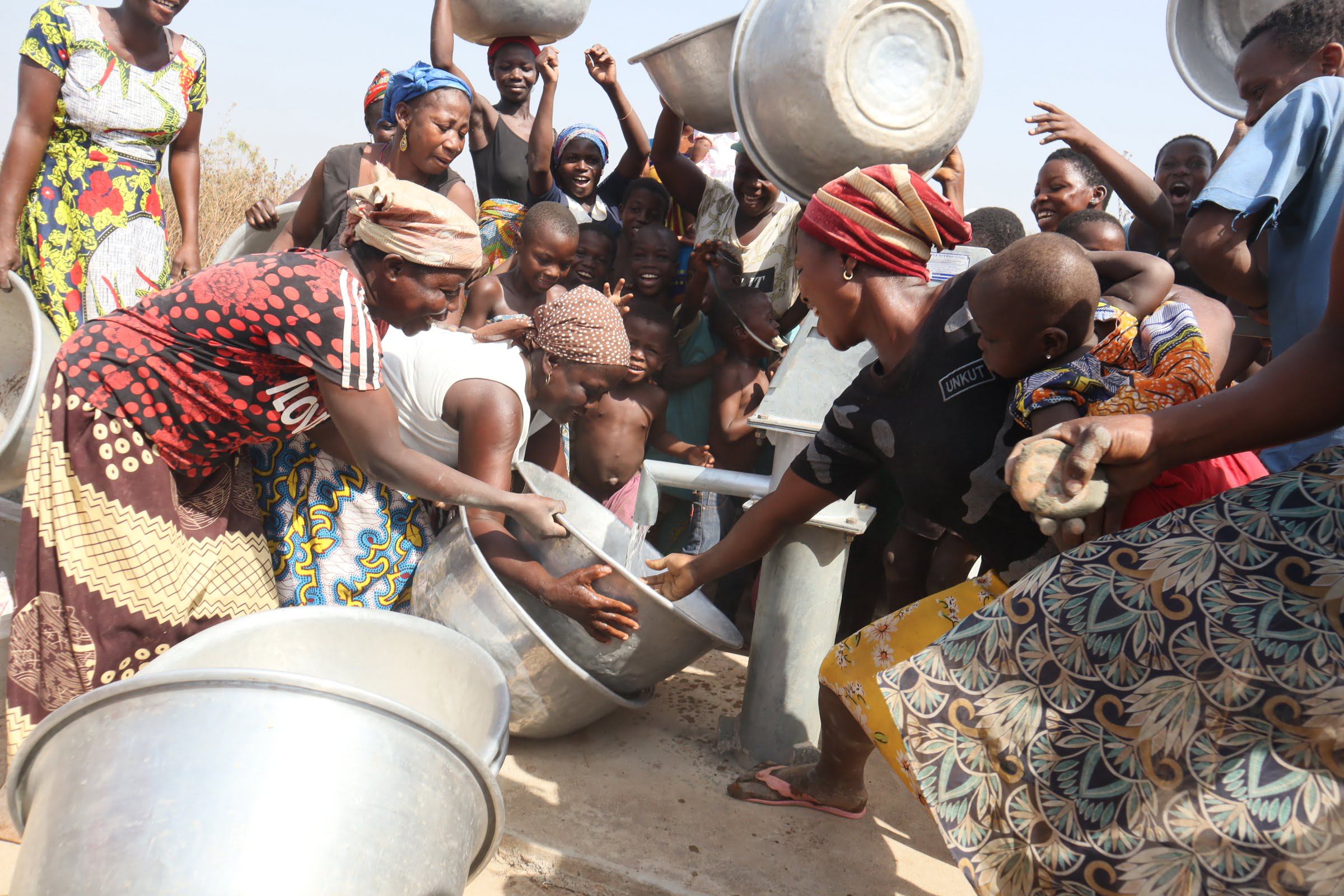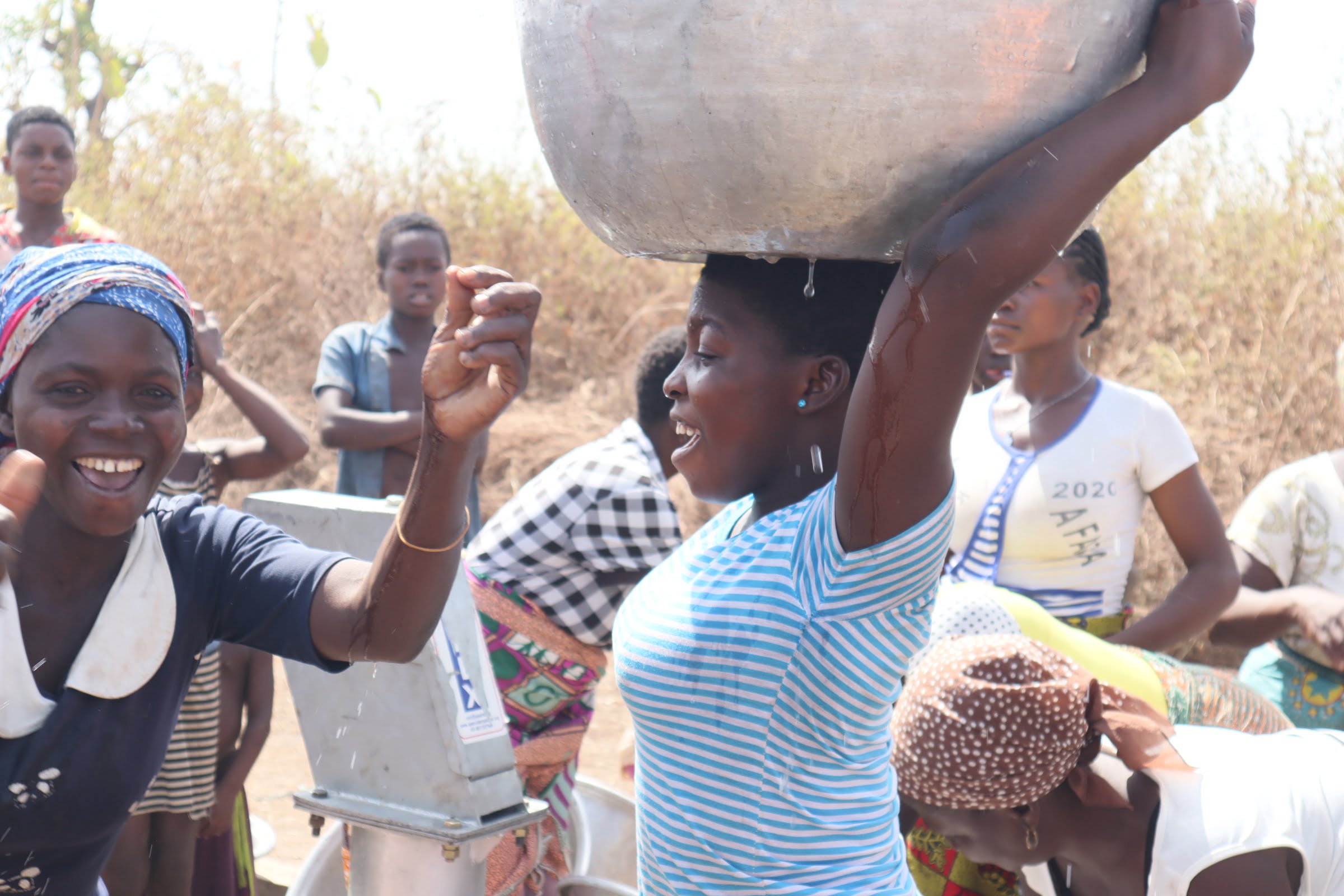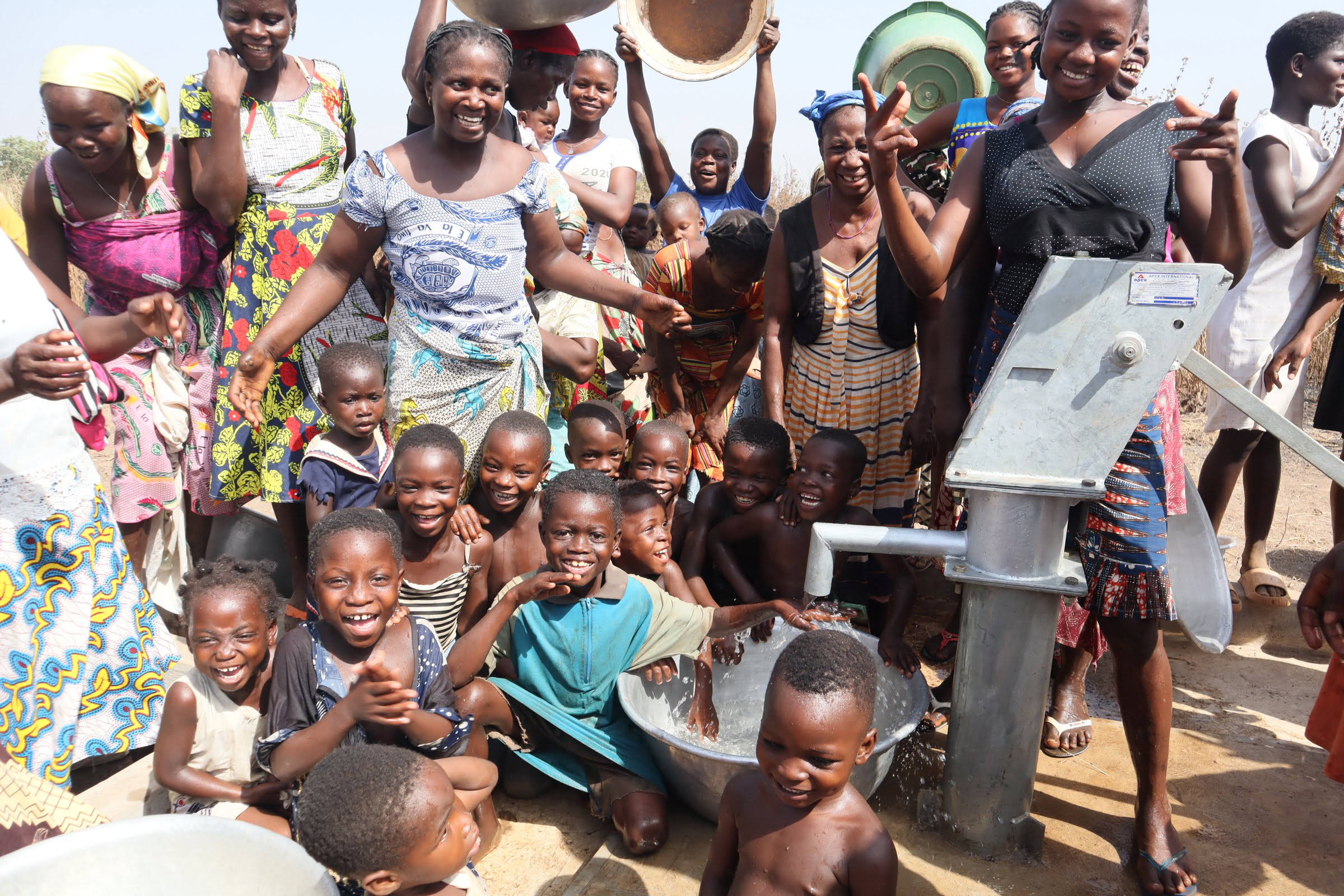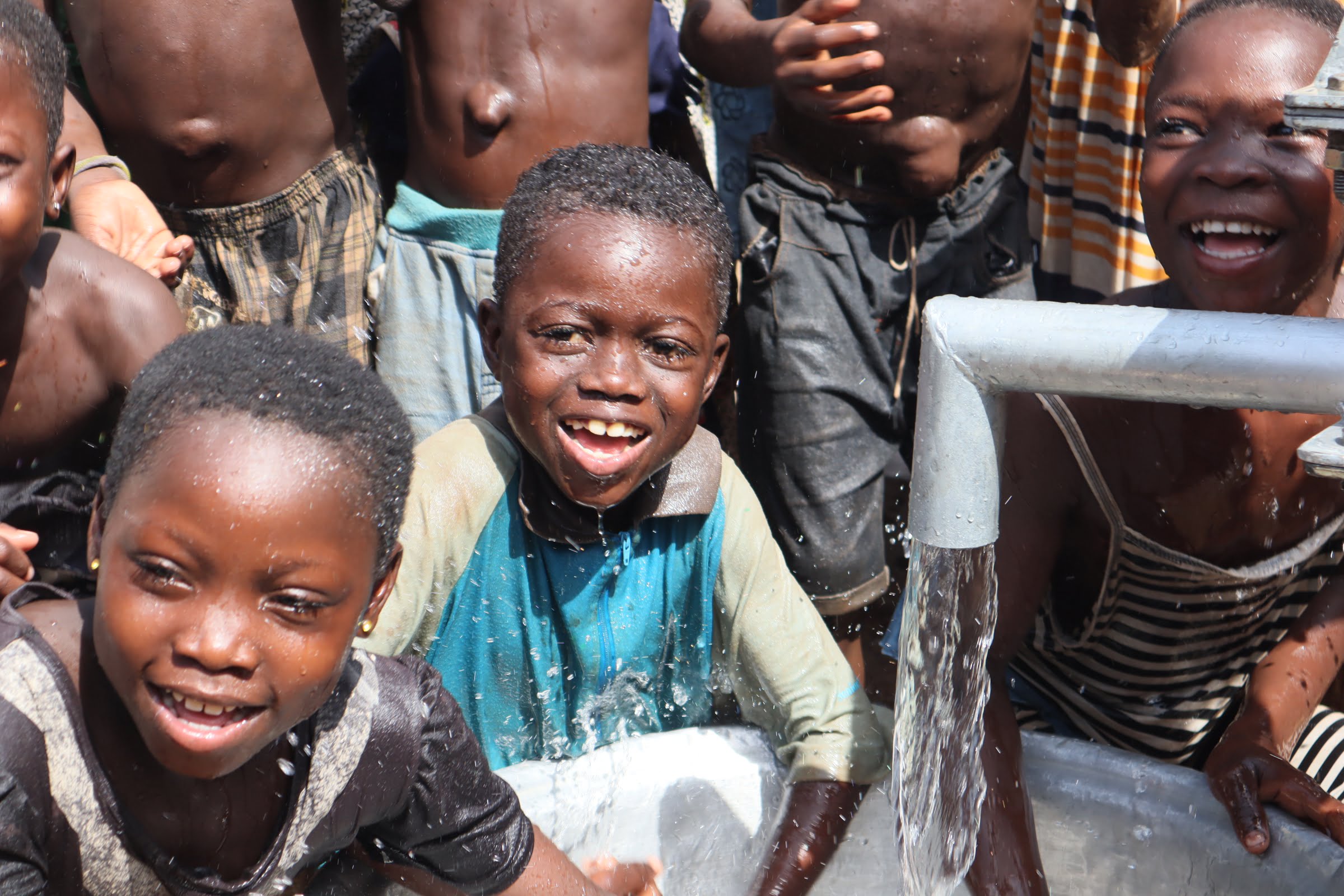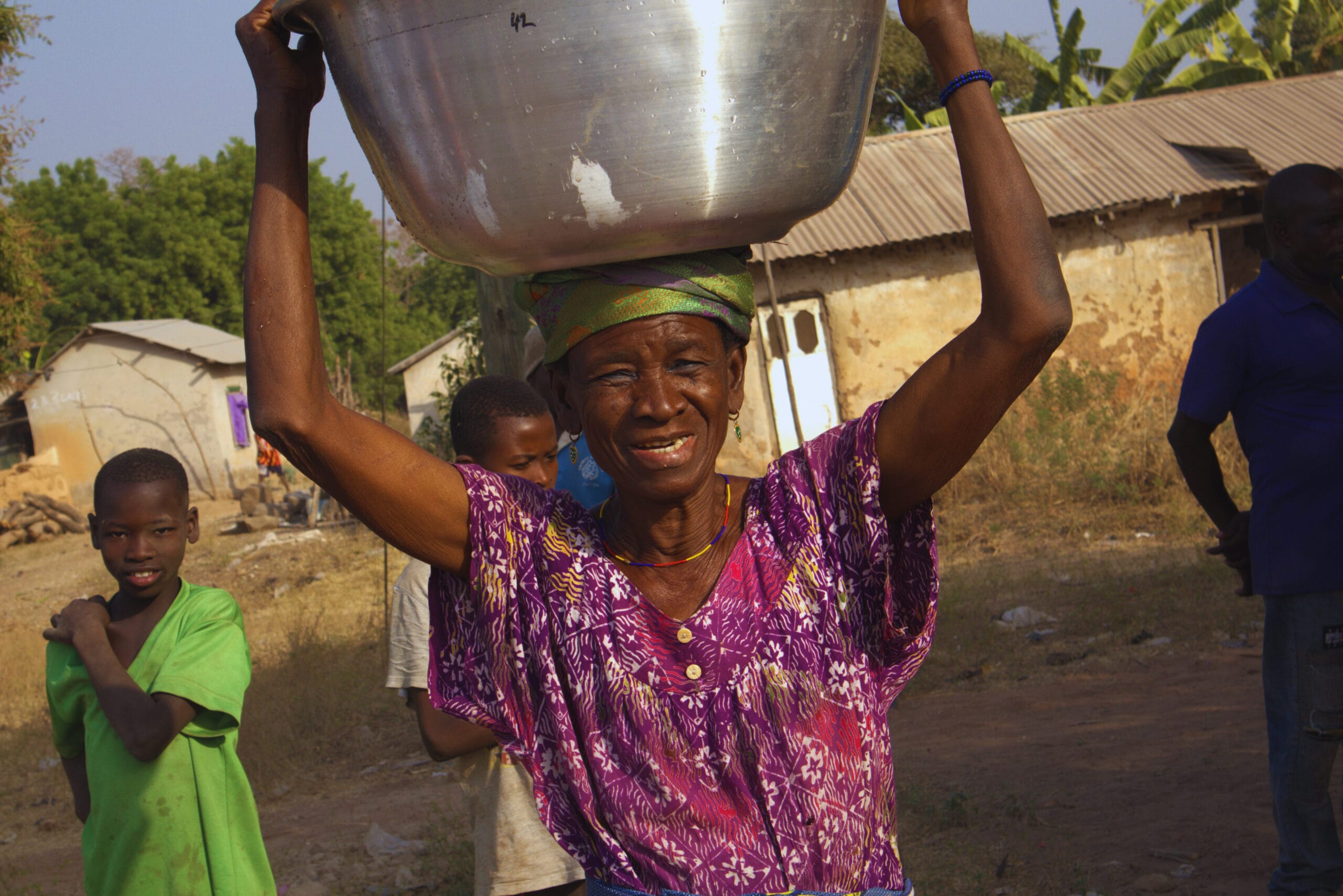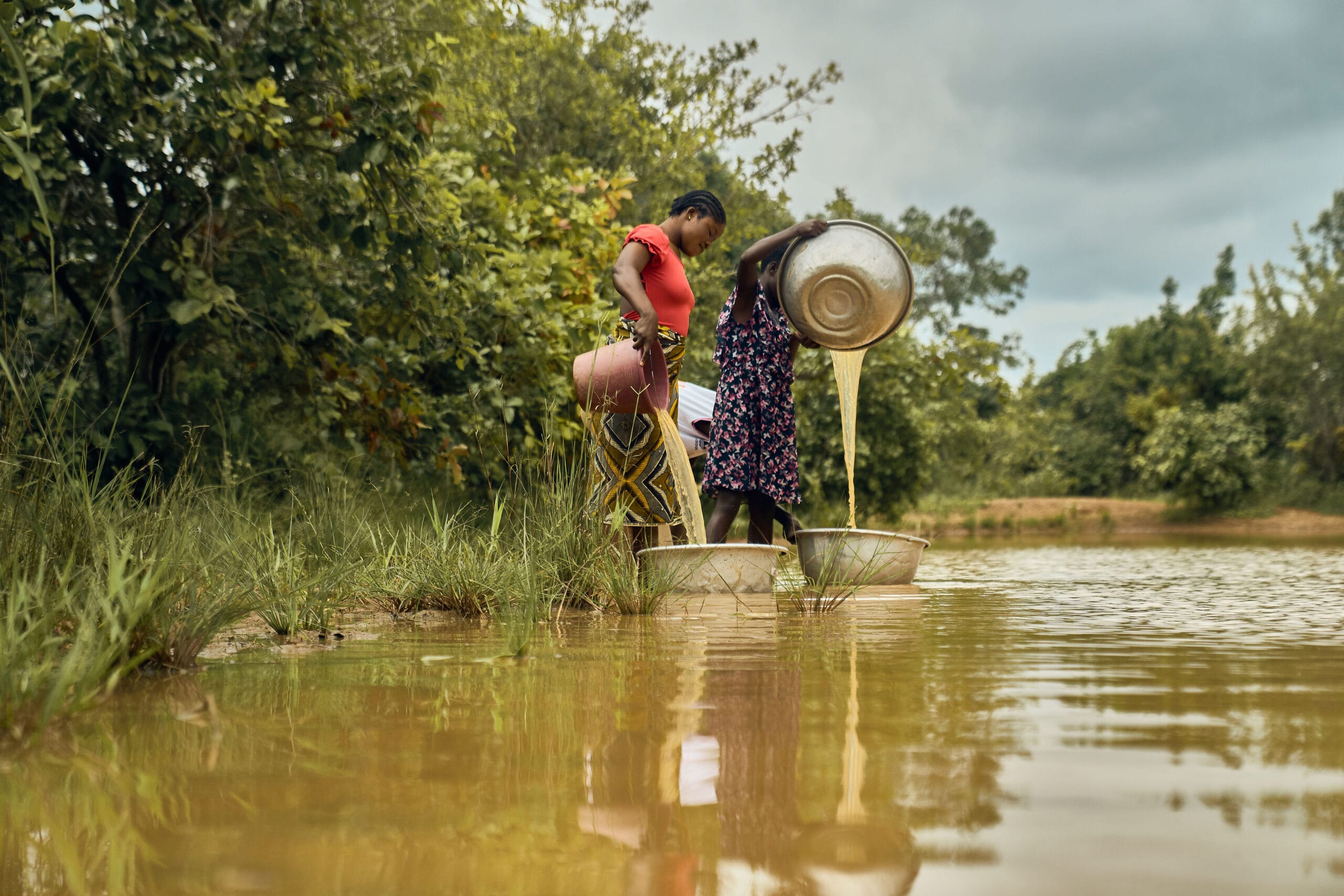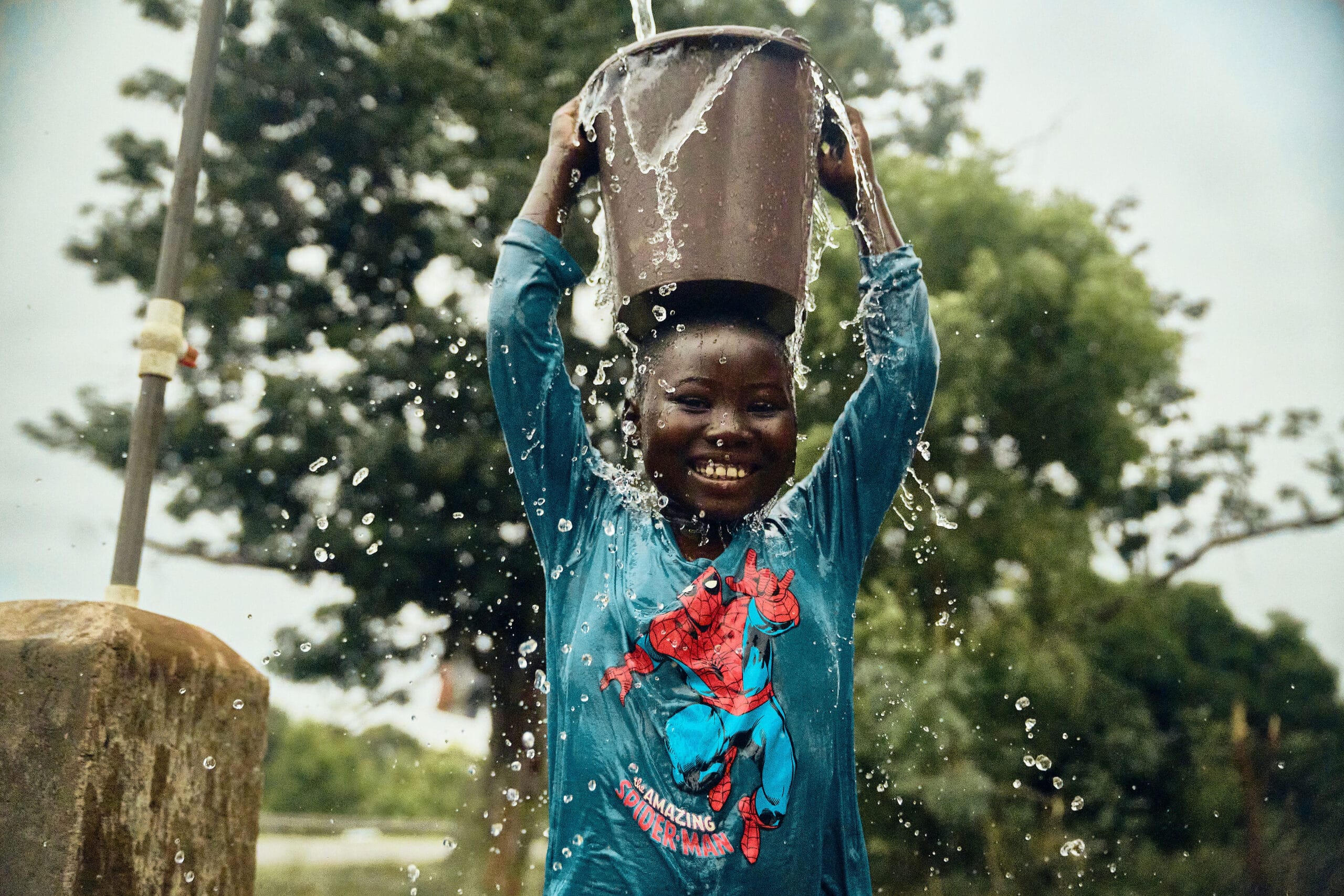Opportunity for Women through Clean Water Access – Building Faith
In Garipke, a sense of celebration fills the air as Humu, a newly married woman, easily carries water, thanks to the blessing of clean water within reach. Other women cheer her on, acknowledging her fortune in having access to clean water near her home. For Humu and many women like her, clean water eliminates the grueling journeys over long distances in search of water. This newfound accessibility not only eases daily chores but also promotes dignity and opportunity within the community. The cheers for Humu symbolize the collective joy and relief felt by the women of Garipke and local churches in the area. With clean water readily available, they can focus on building stronger families and thriving communities without the burden of water scarcity.
A sense of celebration fills the air as Humu, a newly married woman, easily carries water, thanks to the blessing of clean water within reach.
The partnership’s efforts are not just about drilling wells; they symbolize opportunity, equal justice, and progress.
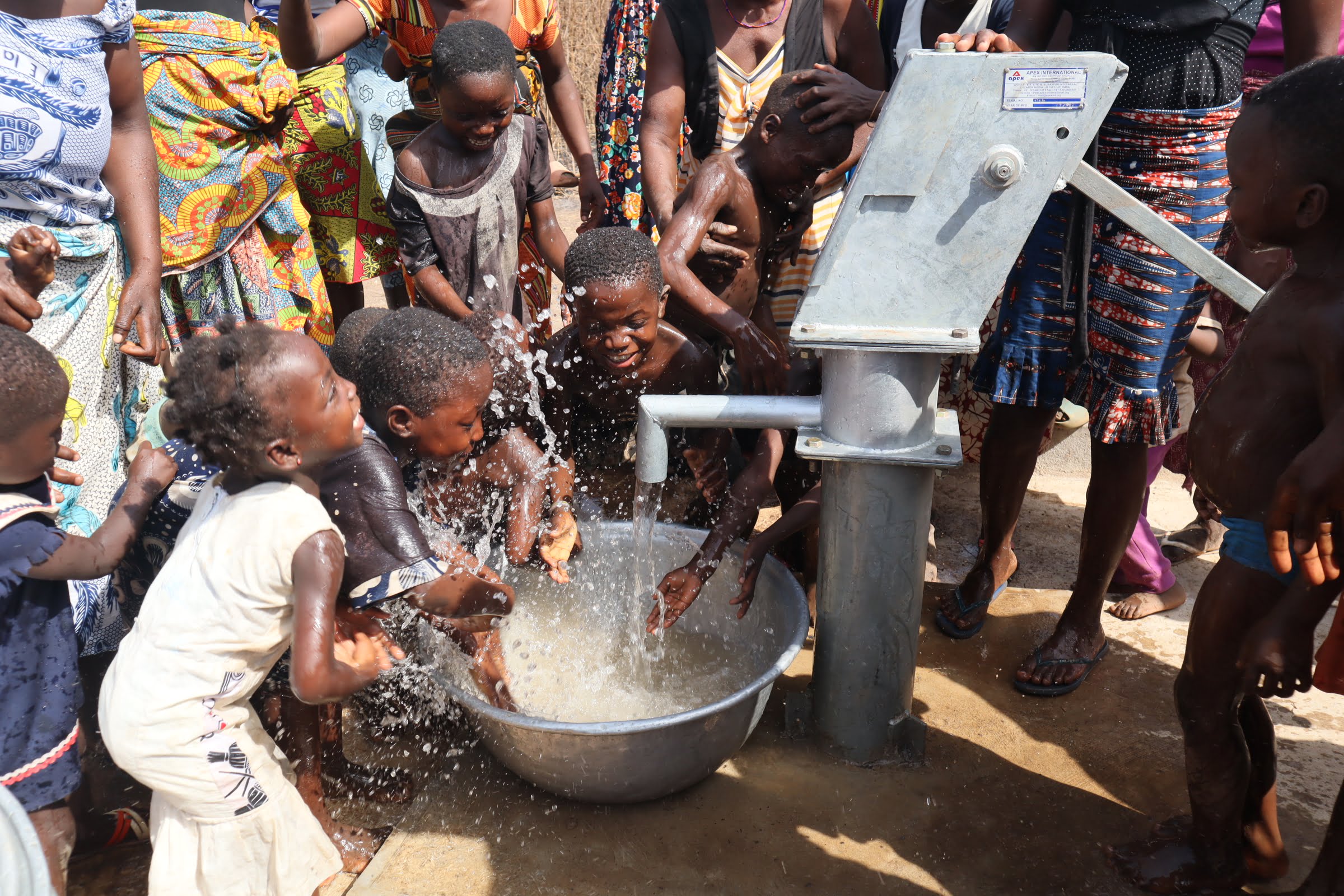
Thanks to the partnership between Water for West Africa, and local churches, clean water is now within reach for Garipke’s residents. The blessing rippled through the community, easing the daily hardships faced by families like Humu’s. The partnership’s efforts were not just about digging wells; they symbolized empowerment, equal justice for women and men, and progress.
CLEAN WATER AS A CATALYST FOR WOMEN’S OPPORTUNITY
Promoting Dignity and Empowerment
Access to clean water is a transformative force in Garipke. Women no longer have to spend hours fetching water, allowing them to invest time in education, economic activities, and community engagement. This shift is crucial in promoting gender equality and empowering women to take on leadership roles within their communities.
Enhancing Health and Hygiene
Clean water access directly impacts health outcomes. The availability of safe water reduces the incidence of waterborne diseases, leading to healthier families and reducing healthcare costs. Children can attend school regularly, and women can focus on productive activities rather than caring for sick family members.
Building Resilient and Faith in Communities
The success in Garipke exemplifies how clean water initiatives can build resilient communities. By addressing basic needs, WfWA, and local churches enable community members to focus on sustainable development goals, such as education, economic growth, and improved living standards.
